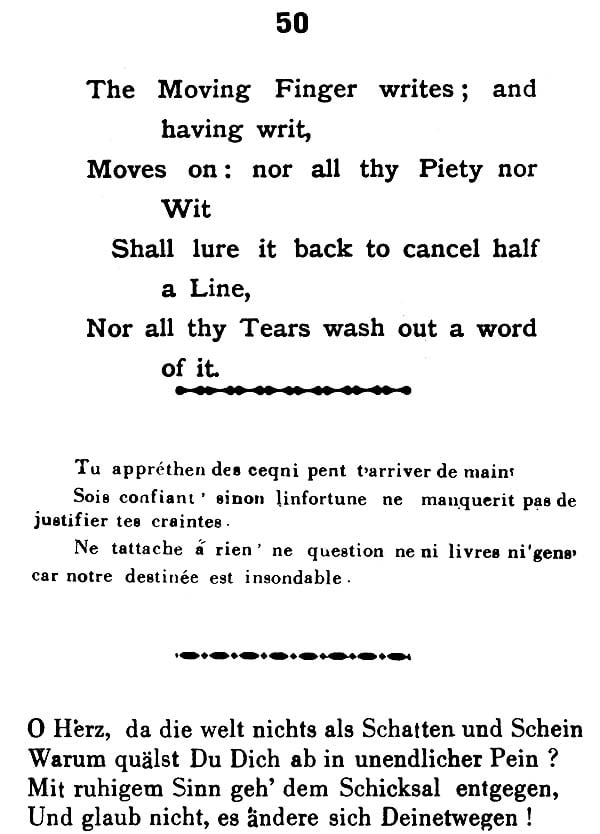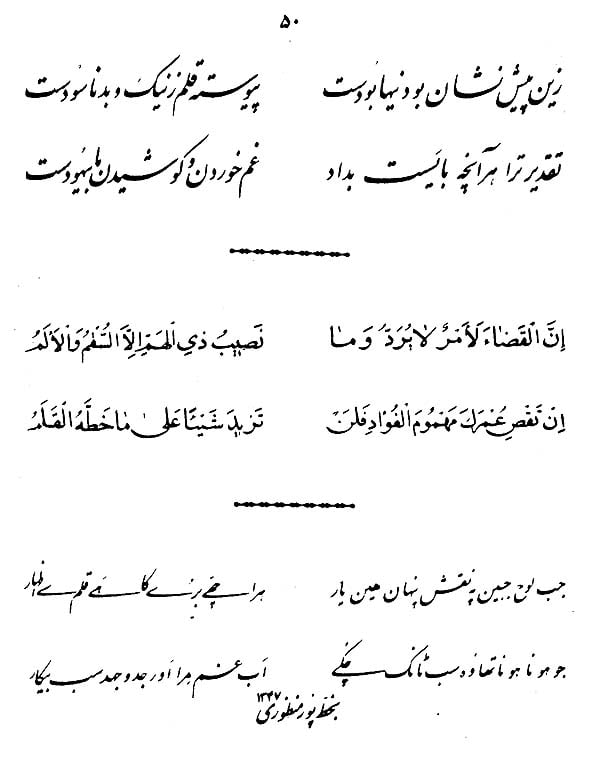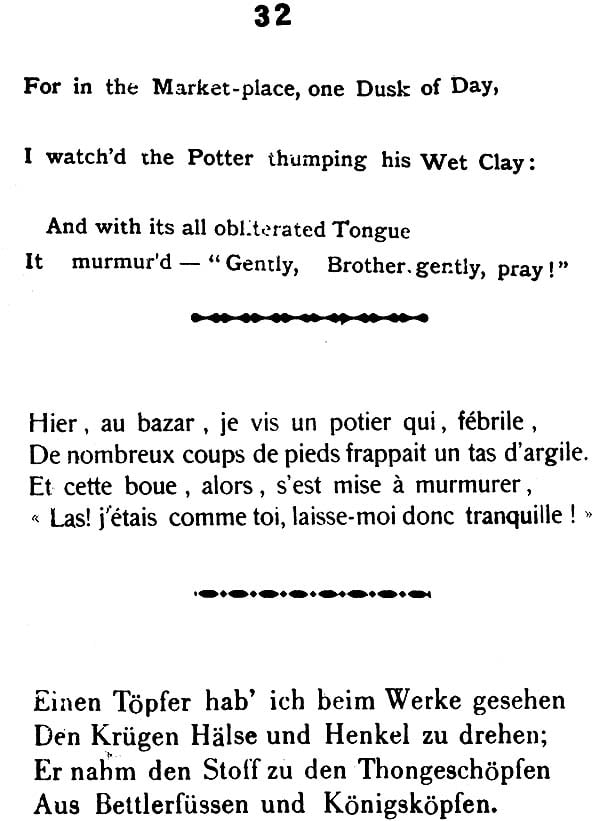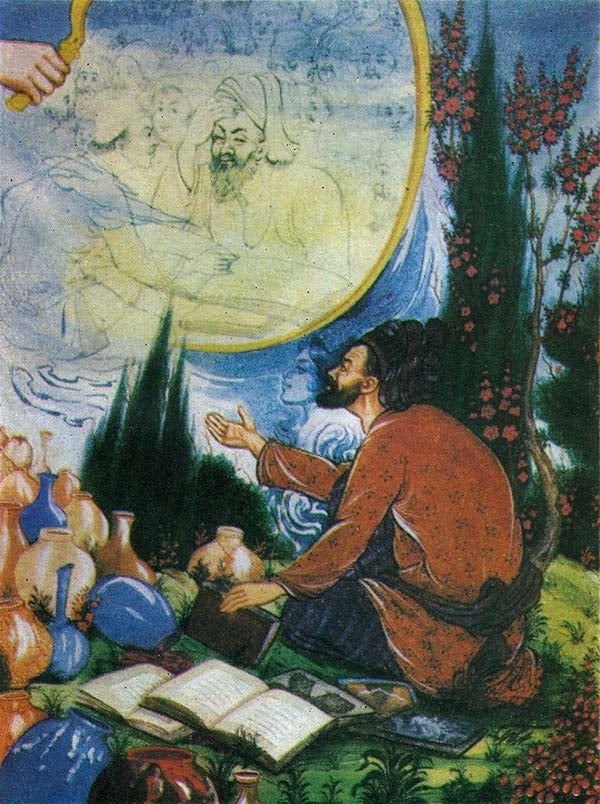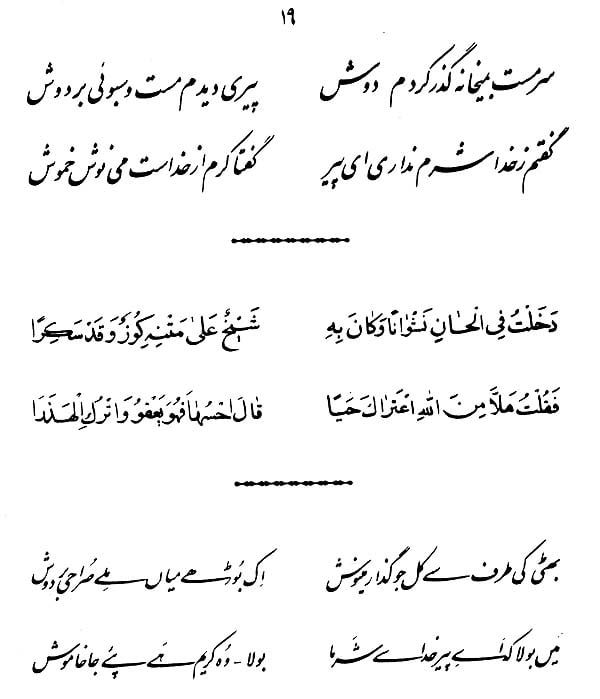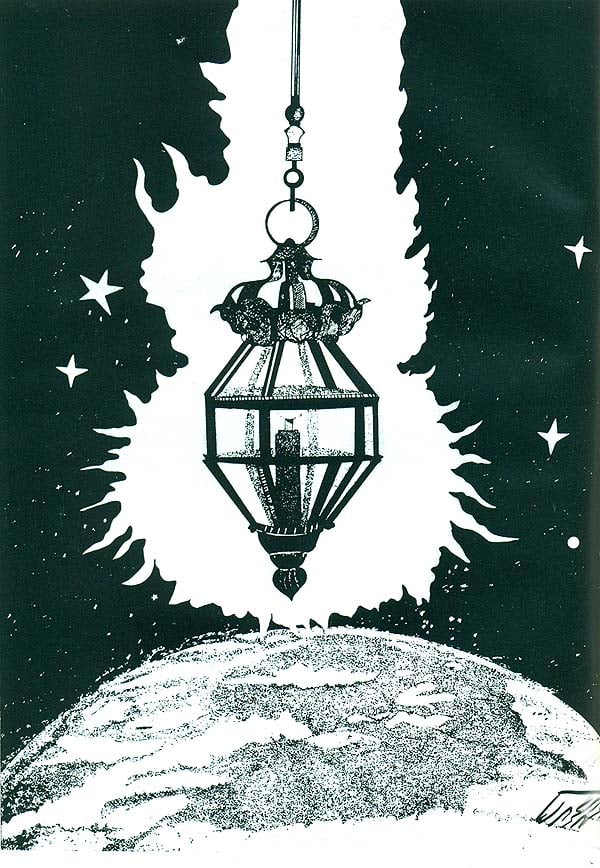
Rubaiyat of Omar Khayyam
Book Specification
| Item Code: | NAJ618 |
| Author: | Edward Fitzgerald |
| Publisher: | Kitab Bhavan |
| Language: | Persian, Arabic, Urdu, English, French and Alamani Text |
| Edition: | 2008 |
| ISBN: | 8171513794 |
| Pages: | 150 (25 B/W and Color Illustrations) |
| Cover: | Hardcover |
| Other Details | 7.5 inch x 5.0 inch |
| Weight | 330 gm |
Book Description
Omar Khayyam
Omar Khayyam was born at Naishapur in Khorasan in the latter half of our Eleventh, and died within the First Quarter of our Twelfth Century. The slender Story of his Life is curiously twined about that of two other very considerable Figures in their Time and Country: one of whom tells the Story of all Three. This was Nizam-ul-Mulk, Vizier to Alp Arslan the Son, and Mill Shah the Grandson, of Toghrul Beg the Tartar, who had wrested Persia from the feeble Successor of Mahmud the Great, and founded that Seljukian Dynasty which finally roused Europe into the Crusades. This Nizam-ul-Mulk, in his Wasiyat-or Testament-which he wrote and left as a Memorial for future Statesmen-relates the following, as quoted in the Calcutta Review, No. 59, from Mirkhond's History of the Assassins .
“One of the greatest of the wise men of Khordsin was the Imam Mowaffak of Naishapur, a man highly honoured and reverenced,-may God rejoice his soul; his illustrious years exceeded eighty-five, and it was the universal belief that every boy who read the Koran or studied the traditions in his presence, would assuredly attain to honour and happiness. For this cause did my father send me from Tus to Naishapur with Abd-us-samad, the doctor of law, that I might employ myself in study and learning under the guidance of that illustrious teacher. Towards me he ever turned an eye of favour and kindness, and as his pupil I felt for him extreme affection and devotion, so that I passed four years in his service. When I first came there, I found two other pupils of mine own age newly arrived, Hakim Omar Khayyam, and the ill-fated Ben Sabbih. Both were endowed with sharpness of wit and the highest natural powers; and we three formed a close friendship together. When the Imam rose from his lectures, they used to join me, and we repeated to each other the lessons we had heard. Now Omar was a native of Naishapur, while Hasan Ben Sabbaih's father was one Ali, a man of austere life and practice, but heretical in his creed and doctrine. One day Hasan said to me and to Khayyam, 'It is a universal belief that the pupils of the Imam Mowaffak will attain to fortune. Now, even if we all do not attain thereto, without doubt one of us will; what then shall be our mutual pledge and bond?' We answered, ' Be it what you please.' 'Well,' he said, ' let us make a vow, that to whomsoever this fortune falls, he shall share it equally with the rest, and reserve no pre-eminence for himself.' 'Be it so,' we both replied, and on those terms we mutually pledged our words. Years rolled on, and I went from Khorasan to Transoxiana, and wandered to Ghazni and Cabul; and when I returned, I was invested with office, and rose to be administrator of affairs during the Sultanate of Sultan Alp Arslan.
" He goes on to state, that years passed by, and both his old school- friends found him out, and came and claimed a share in his good fortune, according to the school-day vow. The Vizier was generous and kept his word. Hasan demanded a place in the government, which the Sultan granted at the Vizier's request; but discontented with a gradual rise, he plunged into the maze of intrigue of an oriental court, and, failing in a base attempt to supplant his benefactor, he was disgraced and fell. After many mishaps and wanderings, Hasan became the head of the Persian sect of the Ismailians,-a party of fanatics who had long murmured in obscurity, but rose to an evil eminence under the guidance of his strong and evil will. In A.D. 1090, he seized the castle of Alamut, in the province of Rudbar, which lies in the mountainous tract south of the Caspian Sea; and it was from this mountain home he obtained that evil celebrity among the Crusaders as the OLD MAN OF THE MOUNTAINS, and spread terror through the Mohammedan world; and it is yet disputed whether the word Assassin, which they have left in the language of modem Europe as their dark memorial, is derived from the hashish, or opiate of hemp-leaves (the Indian bhang), with which they mad- dened themselves to the sullen pitch of oriental desperation, or from the name, of the founder of the dynasty, whom we have seen in his quiet collegiate days, at Naishapur. One of the countless victims of the Assassin's dagger was Nizam-ul-Mulk himself, the old school-boy friend.
" Omar Khayyam also came to the Vizier to claim his share; but not to ask for title or office. 'The greatest boon you can confer on me,' he said, is to let me live in a corner under the shadow of your fortune, to spread wide the advantages of Science, and pray for your long life and prosperity.' The Vizier tells us, that, when he found Omar was really sincere in his refusal, he pressed him no further, but granted him a yearly pension of 1200 mithkals of gold, from the treasury of Naishapur.
At Naishapur thus lived and died Omar Khavyam, busied,' adds the Vizier, in winning knowledge of every kind, and especially in Astronomy, wherein he attained to a very high pre-eminence. Under the Sultanate of Malik Shah, he came to Mery, and obtained great praise for his proficiency in science, and the Sultan showered favours upon him.'
